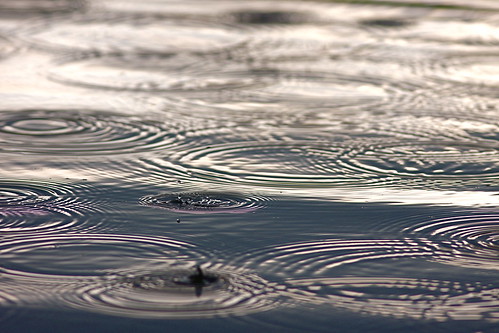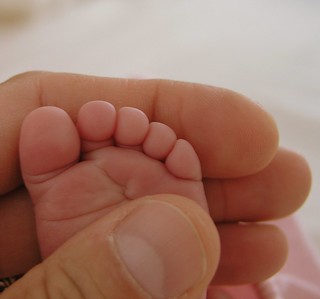by Isabel William

Along with my twins came postpartum depression and the most difficult period of my life. I knew that my life would greatly change after giving birth, but I had never expected to be so overwhelmed by sadness and feelings of hopelessness. Never before had I felt so detached from the world like I did after childbirth. I started to feel a little anxious and depressed even during my pregnancy, but I kept convincing myself that, with hormonal changes and the upcoming labour, that was completely understandable. It took me a while to accept that I was suffering from postpartum depression (PPD) and needed help.
Coming to terms with PPD
I had quite a difficult labour that ended with a C-section delivery. After giving birth, I was so exhausted that I could barely get out of my bed. The first couple of weeks, my husband took time off to help me with our boys, but he quickly had to go back to work and I was mostly alone. I kept convincing myself that I didn’t need anyone’s help. I didn’t want to bother my friends and family, believing that I could manage on my own. I thought that the period of ‘baby blues’ would quickly fade away and I would be left with all the joys of motherhood. Days passed slowly, filled with anxiety, depression and irritability. Feelings of emptiness and sadness kept me awake night after night, so I would get three hours sleep at most. However, what terrified me the most was the lack of connection with my babies. I started to feel guilty and worthless, believing that I would fail as a mother. This was the moment when I finally came to terms with the fact that I wasn’t suffering from baby blues but from severe PPD.
Turning To Mindful Practices
 After finally accepting that I needed help, I decided to find a way to get better. However, I didn’t want to take antidepressants because I’d heard about a lot of negative experiences from mothers who felt they hadn’t benefited from medication. Since I used to practice yoga for a short period before my pregnancy, I decided to find out whether yoga and meditation could help me feel better and overcome PPD. I came across numerous studies suggesting that practising mindfulness could help alleviate the symptoms of PPD.
After finally accepting that I needed help, I decided to find a way to get better. However, I didn’t want to take antidepressants because I’d heard about a lot of negative experiences from mothers who felt they hadn’t benefited from medication. Since I used to practice yoga for a short period before my pregnancy, I decided to find out whether yoga and meditation could help me feel better and overcome PPD. I came across numerous studies suggesting that practising mindfulness could help alleviate the symptoms of PPD.
So, I decided to give it a try. I thought that practising mindfulness would just help me escape from my thoughts and relax. However, what ensued was a long, challenging journey and exploration of my inner self.
Since I was so overwhelmed by my feelings, I was reluctant to leave my home often, so I decided to start practising mindfulness on my own. I spent days reading about mindfulness and the different techniques I could try. Only when I read Thich Nhat Hanh’s The Miracle of Mindfulness did I feel ready to start. This book revealed to me what mindfulness and meditation truly are: “a serene encounter with reality”. Mindfulness is about seeing reality as it is, calmly and honestly, without any emotional filters or reactions. It’s about being able to truly experience and accept the events, emotions and thoughts in your life regardless of whether they are positive or negative.
Beginning To Face Myself
My mindful journey started with body scans and mindful breathing. I began by lying on the floor, becoming aware of my posture and every tingling sensation in my body, paying attention to every part of it or how the yoga mat felt against my skin. Then I focussed on my breathing, forming the intention of being completely aware of every breath I inhaled and exhaled.
I was halfway through my first meditation session when I gave up, feeling completely overwhelmed by my negative thoughts and feelings. After several unsuccessful sessions, hopelessly trying to zone out everything around me, I realised that I could not escape from myself. I needed to face my feelings, thoughts and fears in order to strip them of the emotional impact they had on me.
Slowly but surely, as my meditation continued, I became more mindful. From time to time, my mind would wander away and I would start to feel anxious again, but I would gently bring my attention back to sensations of breathing. I learnt to be less judgmental about my wandering mind. I also learnt how to turn towards unpleasant thoughts and feelings that arose during meditation.
In the meantime, I learnt how to become more mindful in my everyday life. Washing the dishes was no longer about mindlessly scrubbing while my thoughts were somewhere else. It became a mindful practice that enabled me to be present. In the evening, body scans helped me relax and fall asleep more easily. I could relieve the tension from my body and simply drift off to sleep.
Accepting The Moment As It Is
When I started practicing mindfulness, I didn’t do it to simply get rid of stress and anxiety. In fact, I didn’t have any specific goals or expectations in mind. I just wanted to feel more connected with myself and the world around me. It was never about achieving a particular state – like bliss – but rather about learning to be with my experience in the moment. I accepted that mindfulness will never eliminate negative experiences from my life altogether. Instead, by becoming more aware of moment-to-moment experience, I could let go of the need for life to be a particular way.
As time passed, I became less anxious and more at peace with myself. No longer was I overwhelmed by that little voice in my head telling me that I would fail, that I was unworthy. I accepted that the mindful journey is a lifelong journey, and that patience was key.
The Benefits Of Mindfulness
One of the main areas of my life that has noticeably changed thanks to mindfulness is my family life. I’ve been more, and more grateful for their help and support, and how they didn’t gave up on me. I’ve learnt to be more patient with my husband. Being more mindful in my parenting, my bond with my two boys seems to strengthen from day to day.
More generally, I’ve learnt that simply being present means that I can cherish life as lived in the moment. No longer do I feel weighed down with worries about what the future will bring.
 These days, I sleep so much better. No longer do I wake up dreading the day. I look forward to it. I’ve managed to continue with my meditation practice and folding mindfulness into my everyday routines (doing my laundry, washing the dishes, walking) seems to get easier and easier. I’ve long since realised that mindfulness isn’t about stopping thoughts. Thoughts will arise whether I like it or not. But I don’t need to believe everything that my mind tells me. I can allow thoughts to come and go, without getting caught up in their content.
These days, I sleep so much better. No longer do I wake up dreading the day. I look forward to it. I’ve managed to continue with my meditation practice and folding mindfulness into my everyday routines (doing my laundry, washing the dishes, walking) seems to get easier and easier. I’ve long since realised that mindfulness isn’t about stopping thoughts. Thoughts will arise whether I like it or not. But I don’t need to believe everything that my mind tells me. I can allow thoughts to come and go, without getting caught up in their content.
The period after giving birth was undoubtedly the most difficult one in my entire life. Nonetheless, I believe that it was an essential phase in my life that helped me discover myself and find my inner peace. I’ve learnt that both negative and positive experiences will come and go. I cannot hold on to the positive ones or eliminate the negative ones. What I can do is be mindful of the experiences in my life and learn to accept whatever may come.
It can be daunting for anyone to begin turning towards experience, to become more intimate with oneself, with others and the world of nature, with life itself. It takes courage and it requires a great deal of self-compassion. But that process can begin at any time, whenever you are ready. It can start with the very next breath.
Find more of Isabel’s writing here
Latest posts by Admin (see all)
- The Necessity of Mindfulness: Seeing Things as They Really Are - October 6, 2021
- How Mindfulness Saved My Life - August 8, 2021
- Mindfulness: A Bird’s-Eye View - July 11, 2021